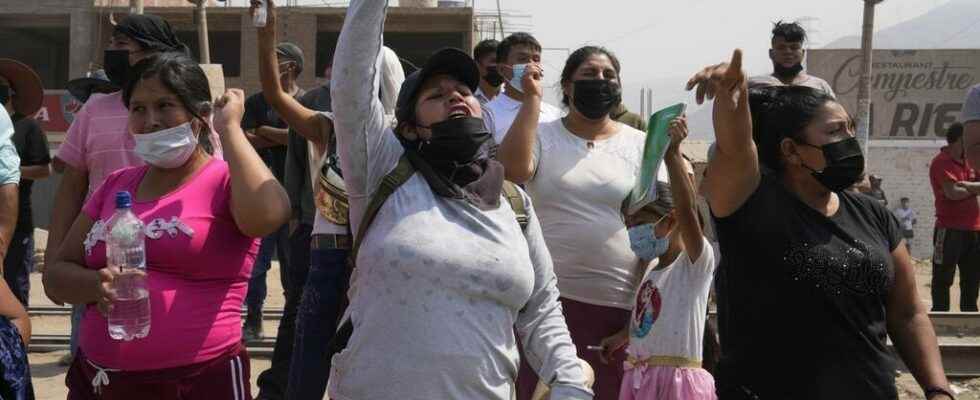While the regime of President Pedro Castillo is criticized by 76% of the population, according to the polling institute Ipsos Peru, the social crisis leaves no respite to the government. Criticizing the authorities’ lack of response to the social and economic crisis, strikes and social movements are multiplying. The latest with farmers in several parts of the country blocking roads for 24 hours.
In Puno, Arequipa, Satipo, Ayacucho and Ancash, farmers blocked major roads for 24 hours. They are threatening to embark on an indefinite strike if the authorities do not respond to their demands, reports our regional correspondent, Eric Samson. In addition to inflation due to the pandemic and the increase in fuel prices, the blocking of Russian exports is causing a lack of fertilizers which is compromising the next harvest.
► Read also : soaring fertilizer prices are causing concern in major agricultural countries
Peruvian farmers are threatening a new blockade on May 1 if the government does not guarantee the supply of fertilizers. A possible general strike could be decided on May 14 during a meeting of the main agricultural organizations in the country.
The Constitution in the viewfinder of President Castillo
These repeated strikes and social movements have a dramatic impact on tourist activity, already affected by the pandemic and the recent strike by air traffic controllers. According to the association of travel agencies, foreign tourists are massively canceling their reservations.
the President Castillo affirms that the current liberal Constitution (1993), inherited from the Fujimori era, is responsible for the economic inequalities of the country because of its ultra liberalism. He therefore announced on Friday the sending of a bill to Congress to organize a referendum in October and obtain authorization to set up a constituent assembly. It will take the approval of Congress by an absolute majority for this referendum to be possible.
►To read: in Peru, violent demonstrations against the rising cost of living
